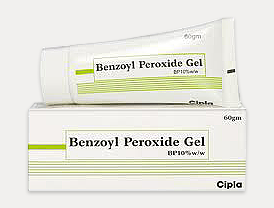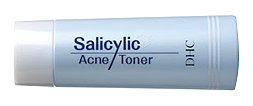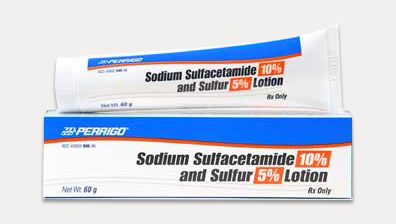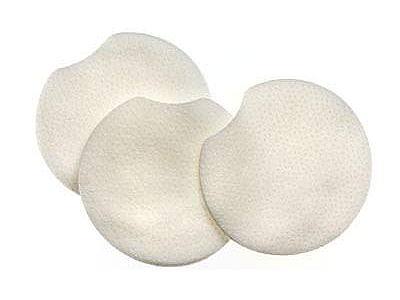Popular Articles
- 35 Herbal Treatments for Acne
- Epsom Salt for Acne and Pimples
- 10 Vitamins for Acne
- When Does Acne Stop for Men, Women, & Teens?
- Tea and Acne - 4 Teas that Help
- 6 Supplements for Acne
- Acne Nodules - Get Rid of Them
- Peroxide for Acne - Hydrogen & Benzoyl Peroxide
- Natural Alternatives for Accutane
- Actimine Supplement Facts
- More Articles ...
 Acne CleansersIn This Article
Introduction to acne cleansers, including types of acne cleansers and effectiveness of the most common acne cleansers for men and women.
On the road to clear skin, you will have to decide which types of acne treatments work best both for your acne and for your overall convenience. One of the choices you will need to make is deciding what type of acne cleanser you are looking for. While acne is not caused by poor hygiene, it is still important to keep your face clean and clear. That's why you will need an acne cleanser. Acne cleansers are an important part of treating acne, but choosing the wrong cleanser can make it much more difficult to clear your skin. What is the Difference Between an "Acne Cleanser" and a Traditional Cleanser?While not all acne cleansers are created equal, all acne cleansers are designed to clean the skin – much like traditional cleansers. However, it's very important that you choose an acne cleanser rather than a traditional cleanser. Acne cleansers are formulated specifically for those living with acne. Traditional cleansers are made very differently. Traditional cleansers:
Acne cleansers:
When you suffer from acne, everything you use on your face should be made for those with acne breakouts, because acne prone skin is very different than non-acne prone skin. This means that you do need to choose a cleanser for acne and get rid of your traditional cleanser. Types of Acne CleansersThere are many non-medicated acne cleansers available. These types of cleansers are made for skin that is subjected to some other type of acne treatment. You do not want to over-treat your acne, as this can actually create further acne, so non-medicated acne cleansers are usually used when you want to clean your skin but have some other treatment in use. Still, it is best to avoid traditional cleansers. If it is not made for acne prone skin or labeled noncomedogenic (which means safe for acne), you should strongly consider avoiding it. Most people choose to use medicated cleansers. There are generally three types of medicated cleansers for acne:
Both are very common topical acne treatments. Each one has their own benefits for acne. These include:
In addition to these medicated cleansers for acne, there are also natural acne cleansers. However, most natural acne cleansers use the same above ingredients. Many use salicylic acid derived from natural sources like white willow bark. Others use tea tree oil, aloe, and other herbal remedies, although it's not clear if these cleansers are beneficial as few have ever been researched. Acne Cleansers for MenMen and women generally have different hygiene needs, so many men look for acne cleansers designed specifically for males. Because acne is caused by similar bacteria, there isn't necessarily a cleanser that is better for male skin or female skin. Any cleanser for acne you find at the store can have benefits provided you choose one that's right for your skin type and any other treatments you may be taking.
If you're not one to use a full-on cleanser, there are several acne pads that allow you to simply wipe your face clean. They are not as effective as other acne products, but they are often better than leaving your skin dirty. When to Use Acne CleansersIt's best to use an acne cleanser twice a day – in the morning and at night. You shouldn't need any more than this, nor will using an acne cleanser more often help your skin. In fact, if you use a cleanser too often, you risk irritating your skin further and developing more acne. Your dermatologist may even recommend only one medicated acne cleanser application per day depending on the type of skin and the severity of your acne. It's also important to remember that all acne products need to be used for close to three months before you can expect to see changes in your acne. Even if you can't see it, acne is often growing long before it reaches the surface, and this acne is unlikely to be cured right away. 12 or so weeks will allow your acne to complete its cycles, so if changes are going to be made they'll be visible. Also, always apply the acne cleanser over your entire face – not just where you see acne. Again, acne is often growing even when you don’t see it. Acne cleansers do not make effective spot treatments. They're better for acne prevention, which involves cleaning your entire face. Overall, acne cleansers are an important part of clearing your acne. Remember to choose one that is not only good for your skin type, but also works with the other products you're using and won't overmedicate you skin. Always talk to your dermatologist if you want recommendations over the best types of acne cleansers. |
||||
| Next Article: Aloe for Acne Treatment |





 Benzoyl Peroxide – Cleansers with benzoyl peroxide are designed to do three things: reduce the amount of
Benzoyl Peroxide – Cleansers with benzoyl peroxide are designed to do three things: reduce the amount of  Salicylic Acid – Cleansers with salicylic acid are best for non-
Salicylic Acid – Cleansers with salicylic acid are best for non- Sodium Sulfacetamide – While not necessarily considered as effective for acne as the other two treatments, many people choose to use acne cleansers with sodium sulfacetamide. It causes the skin to dry out, which – while at first it can be irritating and possibly a little painful – eventually helps to prevent blocked pores. It's not everyone's favorite choice but it can have a valuable effect on acne.
Sodium Sulfacetamide – While not necessarily considered as effective for acne as the other two treatments, many people choose to use acne cleansers with sodium sulfacetamide. It causes the skin to dry out, which – while at first it can be irritating and possibly a little painful – eventually helps to prevent blocked pores. It's not everyone's favorite choice but it can have a valuable effect on acne. In fact, when it comes to your acne, it's best to use what's best for your skin type and try to avoid caring about male vs. female
In fact, when it comes to your acne, it's best to use what's best for your skin type and try to avoid caring about male vs. female